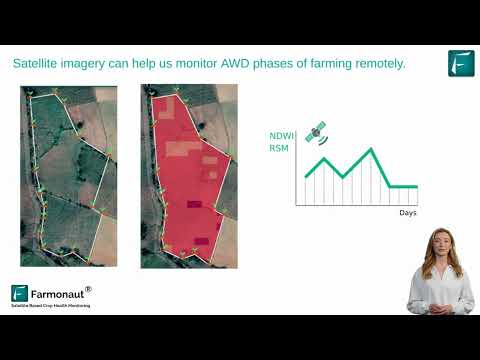Revolutionizing Australian Agriculture: Digital Biosecurity Solutions for Sustainable Farming
“Digital surveillance technologies can detect up to 95% of unusual pest outbreaks in agricultural settings.”
Welcome to our comprehensive guide on revolutionizing Australian agriculture through digital biosecurity solutions and sustainable farming practices. As we delve into the world of modern farming, we’ll explore how cutting-edge technologies and innovative approaches are transforming the agricultural landscape Down Under.

In today’s rapidly evolving agricultural sector, biosecurity has become a paramount concern for farmers and agribusinesses alike. The protection of crops and livestock from invasive species and diseases is crucial for maintaining a thriving and sustainable farming industry. As we navigate through this blog post, we’ll uncover essential agricultural biosecurity measures and crop protection strategies that can safeguard your operations and boost productivity.
The Importance of Biosecurity in Australian Agriculture
Australia’s unique geographical isolation has long been both a blessing and a challenge for its agricultural sector. While it has helped protect the country from many pests and diseases, it has also made the ecosystem particularly vulnerable to new threats. This is why implementing robust biosecurity measures is critical for the long-term sustainability of Australian farming.
- Protecting native flora and fauna
- Safeguarding crop yields and livestock health
- Maintaining Australia’s reputation as a producer of high-quality, disease-free agricultural products
- Ensuring food security for the nation and its export markets
By adopting advanced digital surveillance in agriculture, farmers can significantly enhance their ability to detect and respond to potential threats quickly and effectively.
Digital Surveillance: The Future of Farm Biosecurity
The integration of digital technologies in farm management has opened up new possibilities for monitoring and protecting agricultural assets. Let’s explore some of the innovative solutions that are making waves in the industry:
- Satellite-based monitoring systems: These provide real-time data on crop health, allowing for early detection of pest infestations or disease outbreaks.
- Drone technology: Unmanned aerial vehicles equipped with multispectral cameras can survey large areas quickly, identifying potential issues before they become visible to the naked eye.
- IoT sensors: Networked devices placed throughout the farm can monitor environmental conditions, soil health, and even animal behavior to flag potential biosecurity risks.
- AI-powered image recognition: Advanced algorithms can analyze visual data to identify pest species or signs of crop disease with incredible accuracy.
At Farmonaut, we’re proud to be at the forefront of this digital revolution in agriculture. Our satellite-based crop health monitoring system provides farmers with invaluable insights into their vegetation health, soil moisture levels, and other critical metrics. This data-driven approach enables proactive decision-making and more effective resource management.
Explore our advanced crop monitoring solutions:
Crop Protection Strategies for Australian Farmers
Implementing effective crop protection strategies is essential for maintaining healthy and productive farmland. Here are some key approaches that Australian farmers can adopt:
- Integrated Pest Management (IPM): This holistic approach combines biological, cultural, and chemical control methods to manage pests effectively while minimizing environmental impact.
- Crop rotation: By alternating crops in a given field, farmers can break pest and disease cycles, improving soil health and reducing reliance on chemical interventions.
- Resistant varieties: Planting crop varieties bred for resistance to common pests and diseases can significantly reduce the need for pesticides.
- Biological control: Introducing natural predators or parasites of pest species can help maintain ecological balance and reduce crop damage.
- Precision agriculture: Using data-driven approaches to apply inputs only where and when needed, reducing overall chemical use and improving efficiency.
Our Jeevn AI Advisory System at Farmonaut complements these strategies by providing personalized, real-time insights and expert crop management advice. By leveraging AI and satellite data, we help farmers make informed decisions that optimize their crop protection efforts.
Livestock Disease Prevention in the Digital Age
Protecting livestock from diseases is equally crucial for Australian agriculture. Digital solutions are revolutionizing how farmers approach animal health and biosecurity:
- Electronic identification systems: RFID tags and readers allow for accurate tracking of individual animals, facilitating quick responses to disease outbreaks.
- Automated health monitoring: Wearable devices can track vital signs and behavior patterns, alerting farmers to potential health issues before they become serious.
- Digital record-keeping: Cloud-based systems enable easy storage and retrieval of health records, vaccination schedules, and movement history for each animal.
- Predictive analytics: By analyzing historical data and current trends, AI systems can forecast potential disease outbreaks and suggest preventive measures.
While Farmonaut primarily focuses on crop management, our technology can be adapted to support livestock farmers in monitoring pasture health and optimizing grazing patterns, which are crucial aspects of maintaining animal health and preventing the spread of diseases.
Farm Biosecurity Best Practices
Implementing a comprehensive biosecurity plan is essential for every Australian farm. Here are some best practices to consider:
- Control access to your property: Implement strict protocols for visitors and vehicles entering your farm.
- Maintain clean equipment: Regularly clean and disinfect farm machinery, tools, and vehicles to prevent the spread of pests and diseases.
- Quarantine new animals: Isolate newly introduced livestock for a period to ensure they are disease-free before mixing with existing herds.
- Train your staff: Ensure all farm workers are well-versed in biosecurity protocols and understand their importance.
- Stay informed: Keep up-to-date with the latest biosecurity threats and recommended practices in your region.
Our digital solutions at Farmonaut can assist in implementing these practices by providing real-time monitoring and alerts, helping you stay proactive in your biosecurity efforts.
“Implementing advanced biosecurity measures can increase crop yield efficiency by up to 30% in broadacre farming systems.”
Sustainable Farming Techniques for Australian Agriculture
Sustainability is no longer just a buzzword; it’s a necessity for the future of farming. Here are some sustainable techniques that Australian farmers are adopting:
- Conservation tillage: Minimizing soil disturbance to improve soil health and reduce erosion.
- Cover cropping: Planting cover crops to protect and enrich the soil between main crop cycles.
- Precision irrigation: Using advanced systems to apply water only where and when it’s needed, conserving this precious resource.
- Agroforestry: Integrating trees and shrubs into agricultural systems to improve biodiversity and soil health.
- Organic farming practices: Reducing reliance on synthetic inputs and focusing on natural pest control and soil enrichment methods.
At Farmonaut, we’re committed to supporting sustainable agriculture. Our satellite-based monitoring system helps farmers optimize resource use, reduce waste, and make environmentally conscious decisions. By providing accurate data on crop health and soil conditions, we enable farmers to implement precision agriculture techniques that benefit both their bottom line and the environment.

Agricultural Risk Mitigation Strategies
In the face of climate change and increasingly unpredictable weather patterns, risk mitigation has become a critical aspect of farm management. Here are some strategies Australian farmers can employ:
- Diversification: Growing a variety of crops or raising different types of livestock to spread risk.
- Weather-indexed insurance: Utilizing insurance products that pay out based on predetermined weather events rather than actual crop losses.
- Improved forecasting: Leveraging advanced weather prediction technologies to make informed planting and harvesting decisions.
- Water management: Implementing efficient irrigation systems and water storage solutions to mitigate drought risks.
- Financial planning: Developing robust financial strategies to buffer against market volatility and unexpected expenses.
Farmonaut’s platform contributes to risk mitigation by providing accurate, timely data that enables farmers to make informed decisions. Our weather forecasting and crop health monitoring features help farmers anticipate and prepare for potential challenges.
Biosecurity Technology for Farms: Latest Advancements
The field of biosecurity technology is rapidly evolving, with new innovations emerging regularly. Here are some cutting-edge technologies that are shaping the future of farm biosecurity:
- Blockchain for traceability: Ensuring transparency and security in agricultural supply chains.
- Gene editing: Developing crop varieties with enhanced resistance to pests and diseases.
- Nanosensors: Detecting pathogens and contaminants at the molecular level.
- Robotics: Automating high-risk tasks to reduce human exposure to potential biosecurity threats.
- Big data analytics: Processing vast amounts of agricultural data to identify patterns and predict potential outbreaks.
At Farmonaut, we’re particularly excited about the potential of blockchain technology in agriculture. Our blockchain-based traceability solutions offer unprecedented transparency in supply chains, enhancing trust and reducing fraud risks for farmers and consumers alike.
Explore our API for custom integrations:
Farmonaut API
API Developer Docs
Proactive Farm Management: The Key to Success
In today’s fast-paced agricultural environment, reactive approaches are no longer sufficient. Proactive farm management is essential for staying ahead of potential threats and maximizing productivity. Here’s how farmers can adopt a proactive mindset:
- Regular monitoring: Implement systematic checks of crops, livestock, and farm infrastructure.
- Data-driven decision making: Utilize farm management software to analyze trends and make informed choices.
- Continuous learning: Stay updated with the latest agricultural research and best practices.
- Scenario planning: Develop strategies for various potential challenges, from market fluctuations to climate events.
- Collaboration: Engage with other farmers, researchers, and industry experts to share knowledge and resources.
Farmonaut’s platform is designed to support proactive farm management by providing real-time insights and predictive analytics. Our AI-powered advisory system helps farmers anticipate challenges and take preventive action before issues escalate.
Pest Management for Crops: Innovative Approaches
Effective pest management is crucial for maintaining healthy crops and ensuring good yields. Here are some innovative approaches that Australian farmers are adopting:
- Precision spraying: Using drones or smart sprayers to apply pesticides only where needed, reducing overall chemical use.
- Pheromone traps: Employing insect pheromones to disrupt mating cycles and control pest populations.
- Companion planting: Growing complementary plants together to naturally repel pests or attract beneficial insects.
- Biocontrol agents: Introducing natural predators or parasites to control pest populations without chemicals.
- AI-powered pest identification: Using machine learning algorithms to quickly and accurately identify pest species from images.
Our satellite-based crop monitoring at Farmonaut plays a crucial role in early pest detection. By analyzing vegetation health indices, we can alert farmers to potential pest infestations before they become visible to the naked eye, allowing for timely and targeted interventions.
Comparison of Digital Biosecurity Solutions for Australian Farms
| Solution Name | Primary Function | Key Features | Suitable Farm Types | Estimated Implementation Cost | Potential Yield Improvement (%) | Environmental Impact Rating (1-5) | User-Friendliness Rating (1-5) | Integration with Existing Systems | Real-time Alerts |
|---|---|---|---|---|---|---|---|---|---|
| Farmonaut Satellite Monitoring | Crop health monitoring | Satellite imagery, AI analysis, weather forecasting | Broadacre, horticulture | Low | 15-25% | 4 | 4 | Yes | Yes |
| DroneDeployer | Pest detection | Drone surveillance, image recognition | All types | Medium | 10-20% | 3 | 3 | Yes | Yes |
| LivestockLink | Animal health monitoring | RFID tracking, health sensors | Livestock | High | 5-15% | 4 | 4 | Yes | Yes |
| SoilSense | Soil health analysis | IoT sensors, nutrient mapping | All types | Medium | 10-20% | 5 | 3 | Yes | Yes |
| BioGuard AI | Disease prediction | AI modeling, climate data integration | Broadacre, horticulture | Low | 15-30% | 4 | 4 | Yes | Yes |
This comparison table illustrates the diverse range of digital biosecurity solutions available to Australian farmers. Each solution offers unique features and benefits, catering to different farm types and needs. Farmonaut’s satellite monitoring system stands out for its low implementation cost, high potential yield improvement, and strong environmental impact rating, making it an excellent choice for broadacre and horticultural farms looking to enhance their biosecurity measures.
The Role of Government and Policy in Agricultural Biosecurity
Government policies and regulations play a crucial role in shaping the biosecurity landscape of Australian agriculture. Here are some key aspects of governmental involvement:
- National biosecurity strategies: Development and implementation of comprehensive plans to protect Australian agriculture from external threats.
- Funding for research and development: Government grants and initiatives to support innovation in agricultural biosecurity.
- Quarantine and border control: Strict measures to prevent the entry of potential pests and diseases into the country.
- Education and training programs: Government-sponsored initiatives to improve biosecurity awareness and skills among farmers.
- Legislation and compliance: Development and enforcement of laws and regulations related to agricultural biosecurity.
While Farmonaut is not a regulatory body, our technology aligns with and supports many government initiatives aimed at improving agricultural biosecurity. By providing farmers with powerful monitoring and analysis tools, we help them comply with regulations and contribute to the overall biosecurity efforts of the nation.
The Future of Australian Agriculture: Trends and Predictions
As we look towards the future of Australian agriculture, several trends and predictions emerge:
- Increased adoption of precision agriculture: More farmers will leverage data-driven technologies to optimize their operations.
- Climate-resilient farming: Development of crops and practices that can withstand extreme weather conditions.
- Vertical farming in urban areas: Growth of indoor, controlled-environment agriculture to supplement traditional farming.
- Blockchain in supply chains: Wider implementation of blockchain technology for improved traceability and transparency.
- Autonomous farm machinery: Increased use of self-driving tractors and robotic harvesters to address labor shortages.
At Farmonaut, we’re continually evolving our technology to meet these future challenges. Our commitment to innovation ensures that Australian farmers will have the tools they need to thrive in an ever-changing agricultural landscape.
Experience Farmonaut on your mobile device:


Conclusion: Embracing Digital Solutions for a Sustainable Future
As we’ve explored throughout this blog post, the future of Australian agriculture lies in the adoption of digital biosecurity solutions and sustainable farming practices. By leveraging cutting-edge technologies like satellite monitoring, AI-driven analytics, and blockchain traceability, farmers can significantly enhance their ability to protect crops and livestock, optimize resource use, and improve overall productivity.
The journey towards a more secure and sustainable agricultural sector is ongoing, and it requires the collective effort of farmers, technology providers, researchers, and policymakers. At Farmonaut, we’re proud to be part of this revolution, offering innovative solutions that empower farmers to make data-driven decisions and implement effective biosecurity measures.
As you consider the various digital solutions available for your farm, we invite you to explore how Farmonaut’s technology can support your biosecurity efforts and drive your agricultural success. Together, we can build a resilient and prosperous future for Australian agriculture.
Frequently Asked Questions
Q: What are the main benefits of implementing digital biosecurity solutions on my farm?
A: Digital biosecurity solutions offer numerous benefits, including early detection of pests and diseases, improved resource management, enhanced traceability, and increased overall farm productivity. They also help in complying with regulatory requirements and can lead to significant cost savings in the long run.
Q: How can satellite monitoring improve my farm’s biosecurity?
A: Satellite monitoring provides real-time data on crop health, allowing for early detection of pest infestations or disease outbreaks. It also helps in optimizing resource use, reducing the need for physical inspections, and enabling more targeted interventions when issues are detected.
Q: Are digital biosecurity solutions cost-effective for small-scale farmers?
A: Yes, many digital solutions, including Farmonaut’s platform, are designed to be scalable and cost-effective for farms of all sizes. The potential improvements in yield and resource efficiency often outweigh the initial investment costs, even for smaller operations.
Q: How can I ensure the data collected by digital farming tools is secure?
A: Reputable digital farming solution providers, like Farmonaut, implement robust data security measures, including encryption and secure cloud storage. It’s important to choose providers that prioritize data privacy and comply with relevant data protection regulations.
Q: Can digital biosecurity solutions integrate with my existing farm management systems?
A: Many modern digital solutions are designed to integrate seamlessly with existing farm management systems. Farmonaut, for example, offers API access that allows for easy integration with other software and tools you may already be using on your farm.




